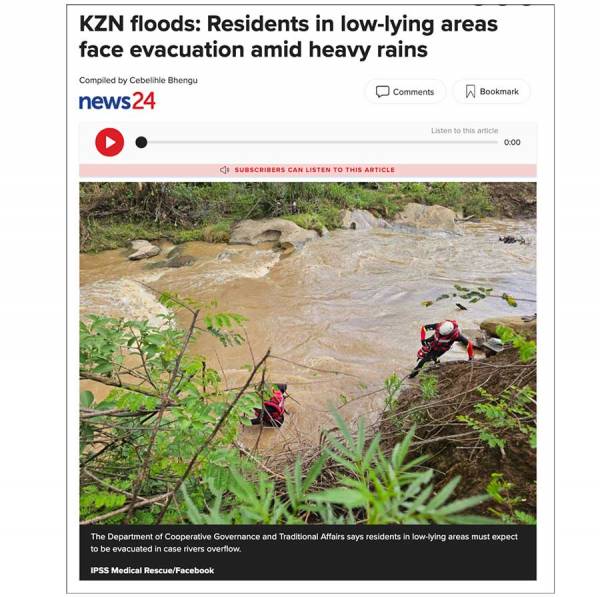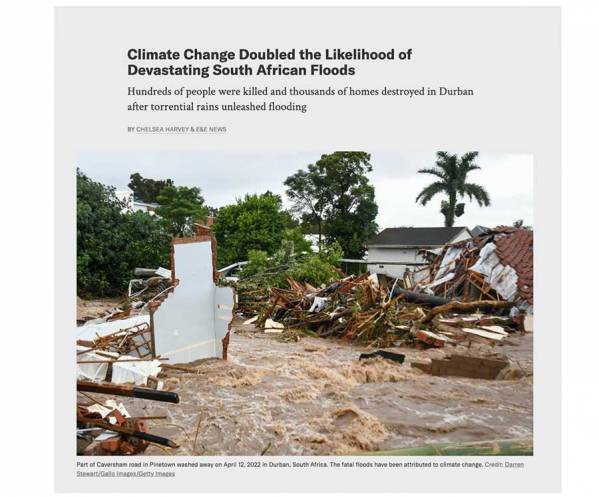Dear Fellow South African,
I have just returned from the African Union Summit in Addis Ababa, Ethiopia, where the worsening effects of climate change on the continent were raised prominently.
🇿🇦His Excellency President @CyrilRamaphosa concludes his working visit to Addis Ababa, Federal Democratic Republic of Ethiopia where he was attending the 37th Ordinary Session of the Assembly of the Heads of State and Government of the African Union.#AUSummit#TheAfricaWeWant… pic.twitter.com/fHhnBzq37H
— #SONA2024 | Presidency 🇿🇦 (@PresidencyZA) February 18, 2024
African leaders have been advocating for urgent, practical and stepped up climate action given the continent’s extreme vulnerability to the effects of global warming.
We have seen a rapid increase in climate-related disasters worldwide as extreme weather events become more frequent. In our own country, we have had wildfires in the Western Cape, heatwaves in the Northern Cape, continuing drought conditions in the Eastern Cape and intense storms in Gauteng.
Even before we could properly recover and rebuild after the 2022 floods in KwaZulu-Natal, Eastern Cape and North West, we were hit again this year with more flooding, further loss of life and damage to livelihoods, property and the local economy.
The insurance industry is warning about the increasing costs of disaster risk finance, and even talking about the prospect of highly vulnerable regions eventually becoming uninsurable.
As noted during the AU Summit, African climate action is constrained by inadequate and unpredictable climate finance. It has long been the continental position that those most responsible for climate change and its impacts, namely developed countries, bear a responsibility to assist developing countries to build climate resilience.
We therefore welcomed the historic agreement at the UN Climate Conference in the United Arab Emirates in December last year to operationalise a Loss and Damage Fund to provide financial support for developing countries that are vulnerable to the impact of climate change. South Africa and the African Group were key to securing this agreement.
At the same time, African countries are forging ahead with plans to mobilise resources in support of climate action across the continent, and the AU Commission has recently established a Climate Finance Unit to ensure this is done in a coordinated manner.
For our part, South Africa has established a Climate Change Response Fund that will bring together all spheres of government and the private sector. By coordinating financial mobilisation from both government and the private sector our country will have collaborative effort to build resilience and respond to climate change.
This includes climate-proofing existing essential infrastructure and facilities such as water and food systems, roads, rail and ports, human settlements and health care.
The fund will also collaborate with a variety of partners to respond to immediate needs in communities following climate change related disasters.
The fund forms an important part of South Africa’s comprehensive response to climate change which includes both adaptation and measures to mitigate green house gas emissions. As I said in the State of the Nation Address, we will undertake our just transition to reach our ambitious emission reduction targets at a pace, scale and cost that our country can afford. At the same, our just transition will be undertaken in a manner that ensures energy security and that supports our developmental objectives.
As a country we cannot be complacent about climate change because its impacts are already with us. We will continue to contribute our fair share to the global climate change effort.
Our country will remain vocal in calling for developed countries to meet their obligations for financing and technology transfer support. We will continue to campaign for transformation of the international financial architecture and reform of multilateral development banks and international financial institutions so that developing countries can access the resources needed for climate action and the implementation of the sustainable development goals.
We will also continue to campaign against the implementation of climate and environment based unilateral actions, policies and taxes and their potential impacts on African exports and trade.
Climate change is a global problem and as such requires collective global action that is sustainable, that takes the differing circumstances and capabilities of countries into account, and that above all, leaves no-one behind.
With best regards,

- Tags:
- African Union /
- Climate change /
- Climate funding /
- UN Climate Conference /
- Climate Change Response Fund /
- Extreme weather
Tweet




